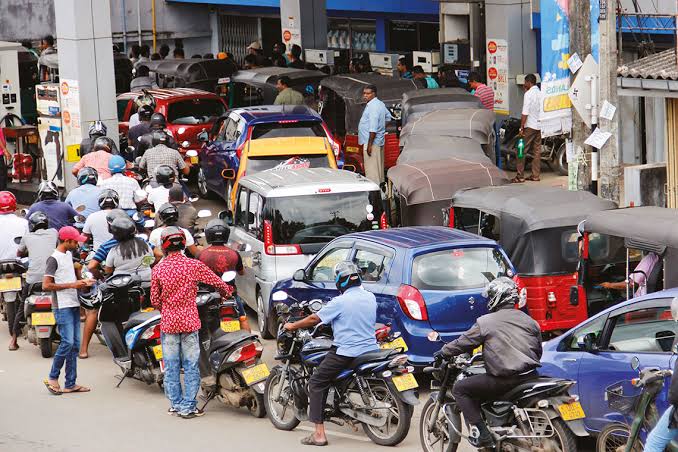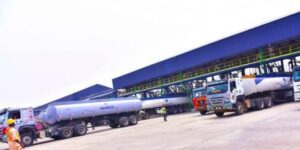

Fuel Scarcity: NNPC blames weather, others disrupting movement of PMS
The Nigeria National Petroleum Corporation (NNPC) Limited has attributed the recent scarcity and hike in fuel price observed in Abuja to disruptions in movement of the products caused by thunderstorms and other weather-related issues.
The Chief Corporate Communications Officer of NNPC Ltd, Olufemi Soneye, made the disclosure in a statement in Abuja on Monday.
Soneye described this as the disruption of ship-to-ship (STS) transfer of Premium Motor Spirits (PMS), between Mother Vessels and Daughter Vessels in the country’s capital, FCT.
According to him, the weather affected berthing at jetties, truck load-outs, and the transportation of products to filling stations, causing interruptions in supply logistics at the stations.
“The NNPC Ltd wishes to state that the fuel queues seen in the FCT and some parts of the country, were as a result of disruption of ship-to-ship (STS) transfer of Premium Motor Spirit (PMS), also known as petrol, between Mother Vessels and Daughter Vessels resulting from recent thunderstorm.
“The adverse weather condition has also affected berthing at jetties, truck load-outs and transportation of products to filling stations, causing a disruption in station supply logistics.
“The NNPC Ltd also states that due to flammability of petroleum products and in compliance with the Nigerian Meteorological Agency (NIMET) regulations, it was impossible to load petrol during rainstorms and lightning,” Soneye said.
In addition, the spokesperson noted that the scarcity was also exacerbated by the flooding of truck routes which constrained movement of PMS from the coastal corridors to the city.
He said NNPC Is working alongside stakeholders to resolve the logistics challenges and restore seamless supply of petrol to affected areas.
He therefore urged motorists to avoid panic buying as well as hoarding as there is sufficient supply of petrol for each station.
“Similarly, the development was compounded by consequential flooding of truck routes which has constrained movement of PMS from the coastal corridors to the Federal Capital, Abuja.
“The NNPC Ltd is working with relevant stakeholders to resolve the logistics challenges and restore seamless supply of petrol to affected areas.
“Already, loading has commenced in areas where these challenges have subsided, and we are hoping the situation will continue to improve in the coming days and full normalcy would be restored,” he added.
Recall that fuel queues had since last week resurfaced in many filling stations across the Federal Capital Territory (FCT).
Most filling stations in Abuja were closed, creating an opportunity for black marketeers to profit. They sold ten litres of petrol for between N12,000 and N15,000, significantly higher than the usual rates.
This steep increase in petrol prices had a ripple effect on transportation costs, causing fares to rise sharply.
As a result, many commuters were left stranded at bus stops, struggling to find transportation. The limited number of vehicles available exacerbated the situation, leaving commuters to face higher costs and longer wait times for transport.
The scarcity of fuel and the inflated prices in the black market not only disrupted daily commutes but also added financial strain to many residents in Abuja.



